WKXL radio wants to return to some of its storied past
| Published: 01-15-2024 7:00 PM |
Any business that’s been around for eight decades will have seen both highs and lows, and Concord radio station WKXL is no exception.
The station began in 1948 in Eagle Square, and its highs started soon afterward as its active news teams gave the AM station the nickname “morning paper of the air,” since the Monitor was an afternoon newspaper at the time. The city history “Crosscurrents of Concord” says the station’s live coverage of the 1967 impeachment trial of Mayor J. Herbert Quinn was so popular that “main roads leading into the city were lined with cars parked so they could listen to the proceedings.”
The station built a facility with five studios on Redington Road – complete with a bomb shelter, thanks to Cold War federal funding – boosted its signal to 1,000 watts and in 1972 added an FM simulcast. Several people who started there went on to prominent careers with National Public Radio, including David Molpus, Scott Horsley and Jacie Judd.
In the 1980s, it was sold to its employees in a very unusual configuration, which kept its spirit alive as news reporting on local radio declined. But industry consolidation was unavoidable; it was bought by Vox Media in 1999, and local reporting was replaced by talk shows and syndicated content, although its storefront studio in the former Concord Camera on Main Street kept it in the public eye for a time.
As for the lows, they’ve been accumulating to the point that the station isn’t even part of the Nielsen rating system. Things hit a nadir in December 2022 when its FM tower on Plausawa Hill in Penacook was blown over along with other towers in a big storm.
But that was then and this is now, says the new general manager, Catherine Martinez, who was promoted to the job from audio producer at about the time the tower fell.
“The direction we’re going in now is great, but it’s going to take some time to get it back to what it was,” said Martinez, the station’s only full-time employee.
Local broadcast radio has been racing the same headwinds facing all media, including newspapers, since the online world took away much of the advertising revenue. The days of newsgathering over radio airwaves are almost over; only New Hampshire Public Radio still has street reporters.
Article continues after...
Yesterday's Most Read Articles
 With Steeplegate still held up in court, city privately debates public investment
With Steeplegate still held up in court, city privately debates public investment
 Sudden pile of trash near Exit 13 on Manchester Street in Concord considered ‘illegal dumping’
Sudden pile of trash near Exit 13 on Manchester Street in Concord considered ‘illegal dumping’
 Mullet madness: Young man who died in motorcycle accident remembered at local fundraiser
Mullet madness: Young man who died in motorcycle accident remembered at local fundraiser
 OSHA investigates Pittsfield partial building collapse
OSHA investigates Pittsfield partial building collapse
 ‘Peace of mind’: As New Hampshire nixes car inspections, some Concord residents still plan to get them
‘Peace of mind’: As New Hampshire nixes car inspections, some Concord residents still plan to get them
Martinez says WKXLisn’t going to try to replicate its past news self – not even Binnie Media, the 800-pound gorilla of the state’s private broadcasting, has tried that – but will focus on health and wellness programming under its NH Talk Radio banner. The station will also stick with sports, led by veteran broadcaster Ken Cail’s Cail & Company Live show.
That is one of a half-dozen shows operating from the Concord studio that give the station local content all morning each weekday, an improvement from some recent times.
One thing that won’t be emphasized is politics, despite the fact that the station is owned by former U.S. Sen. Gordon Humphrey, long a bastion of the GOP in New Hampshire.
“Those are my explicit instructions,” said Humphrey. “I think people who want that stuff have plenty of sources. … They kind of had their fill and would like to find something else.”
Humphrey, who agreed wryly with the sentiment that the station has never been a big profit center, said the goal was to “copy NHPR in quality and intellectual quality of content, while remaining theoretically a business.”
Focusing on health and wellness makes sense since that’s a subject area which can draw listeners, he said: “There’s health, money and sex. We’re not going to do sex, although we might do money eventually.”
The FM antenna is now located with the AM location near their Concord studio. The station also has an antenna on Uncanoonuc Mountain in Goffstown to serve Manchester, but the bulk of its broadcast listeners are in the Capitol Region.
WKXL and the Monitor have long promoted each other. The business side of WKXL is complicated by the lack of Nielsen ratings, which means the only data that WKXL can give to advertisers are numbers from their online streaming. They send the signal to SoundCloud, an audio streaming service, and that is picked up by various outlets that use it for free, generating listeners for the station’s programming.
Martinez says a new advertising manager is taking charge. “We are thinking about the younger generation and how we can market to them, and not necessarily just the older generation that we’ve broadcast to for as long as we have,” she said.
And despite the internet and streaming media, she thinks that analog won’t be replaced by digital, that antennas will remain an important part of what makes radio, radio.
“I don’t think broadcasting is going anywhere soon, but it’s important to work with the times, using streaming as a tool to work in collaboration with broadcast,” she said. “It can only benefit everybody, giving a bigger audience.”

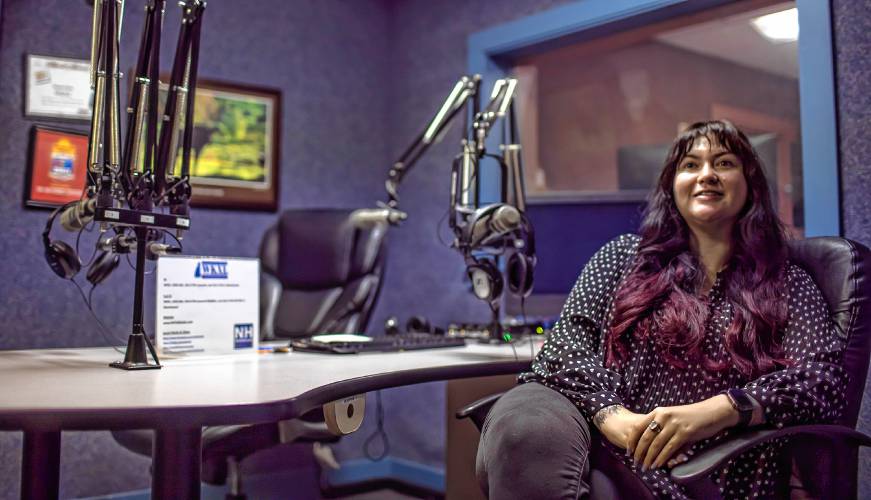
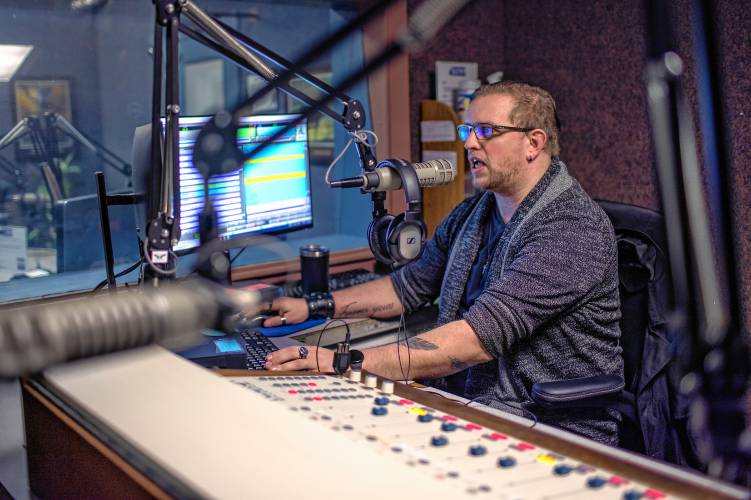
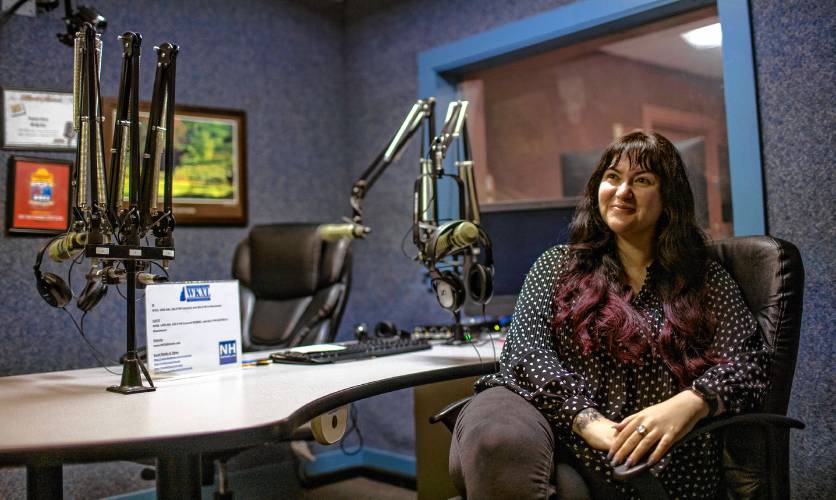
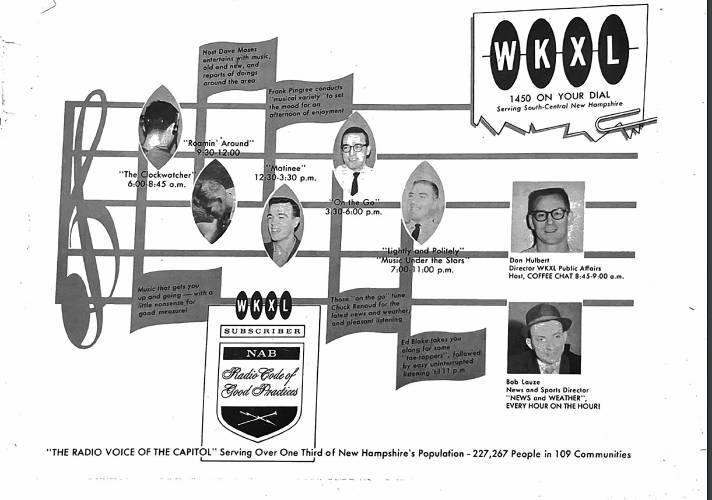
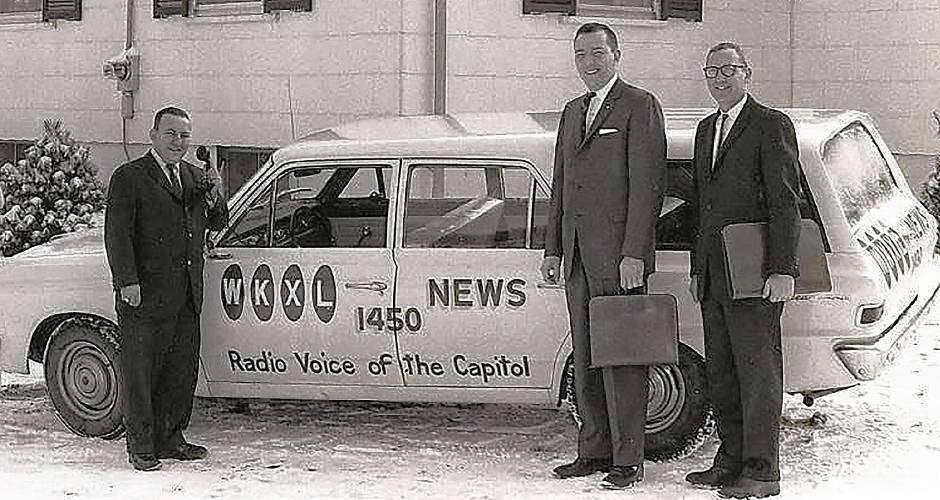
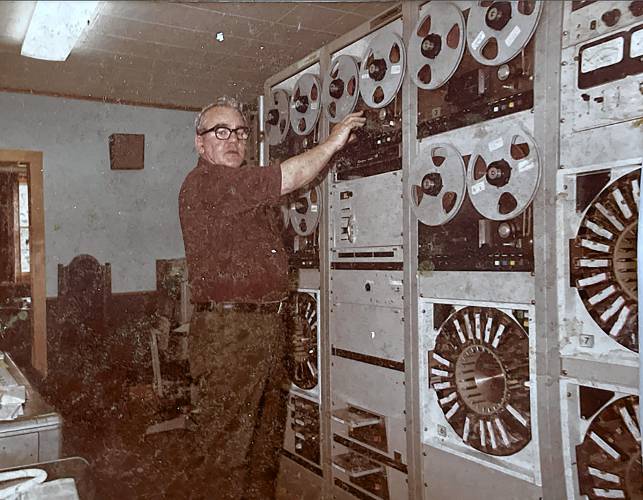
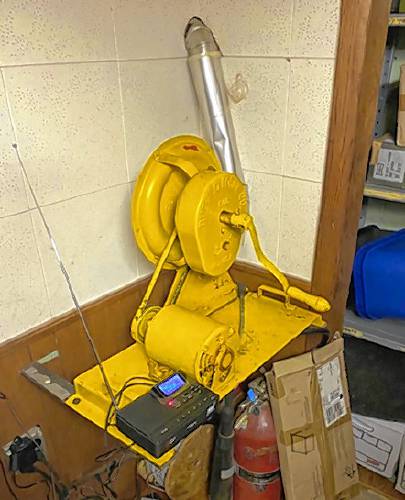






 ‘Entire paradigm has to shift’: Majority of parents express support for phone ban, but predict rocky rollout
‘Entire paradigm has to shift’: Majority of parents express support for phone ban, but predict rocky rollout New Hampshire committee seeks to prevent domestic fatalities like murder-suicide in Berlin
New Hampshire committee seeks to prevent domestic fatalities like murder-suicide in Berlin ‘A little piece of everything I like’: New Pittsfield barbershop brings more than a haircut to downtown
‘A little piece of everything I like’: New Pittsfield barbershop brings more than a haircut to downtown
